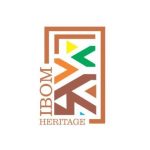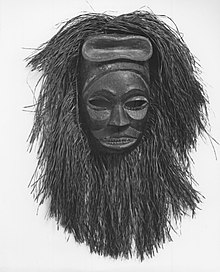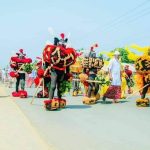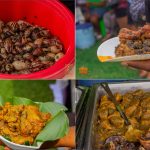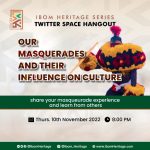There are more than 5 masquerades you should be afraid of in Akwa Ibom State, but in this article, I will talk about 5 of the scariest. Some of them are so horrible, women can’t survive a sight of them. Some are Ibibio cultural cults, while some are simply cultural plays. Meanwhile, please get this book; Ibibio Nation: History & Culture by Oto-Obong Uwah, click here.
Ekòng
This is by far the goriest to watch and you will never find a photograph of it online. It is reported that some years ago near Ibiono, a pregnant woman saw ekòng masquerade by accident and immediately suffered miscarriage. From a description of a member of the ekòng secret cult, the masquerade is bathed with corpses, torn flesh, fresh blood and other repugnant trappings.
Ekpo
The Ekpo is founded on the belief in life after death. And it is regarded as the soul of ancestors that return to the land of the living in masquerade form. It returns to participate with their kinsmen in communal festivals such as farming and rites of passage.
Ekpo is a cult.
To become part of this circle you must be initiated. Also, every activity of this sect is designed to pour fear, dread and caution on women and non-initiates.
Ekpo was known for instituting justice and performing judicial, administrative and religious duties during pre-colonial times.
Atӓt
This means wasp and the head of the masquerade is shaped like a basket. The body-worn costume is woven and the physique of the masquerade is dwarfy. The Atӓt masquerade is played as a festival in a few communities in the state. It is known for the security role it played in ancient Akwa Ibom before colonial times.
This Akwa Ibom masquerade is also known to possess supernatural powers as with the others. Only that it some times performs magical art to the amazement of admirers. Besides these, it was useful in instituting moral values amongst women and other members of old Ibibio society. The aim of the Atat masquerade was to maintain in the cultural society.
Utuèkpè
This means spider in Ibibio. As the name implies, this masquerade behaves like a spider during its display. It would scale heights on strings aided by other members of its troupe.
Nnabò
This is a cult with a very ferocious masquerade. The masquerader himself is made to undergo certain spiritual rites to be able to wear the costume and then be brought out for display. It is found mainly in the Annang areas of Akwa Ibom State.
Primary keywords – masquerade, akwa ibom, ekpo
Brownson Nseime writes from Jabborro PR, Uyo.
